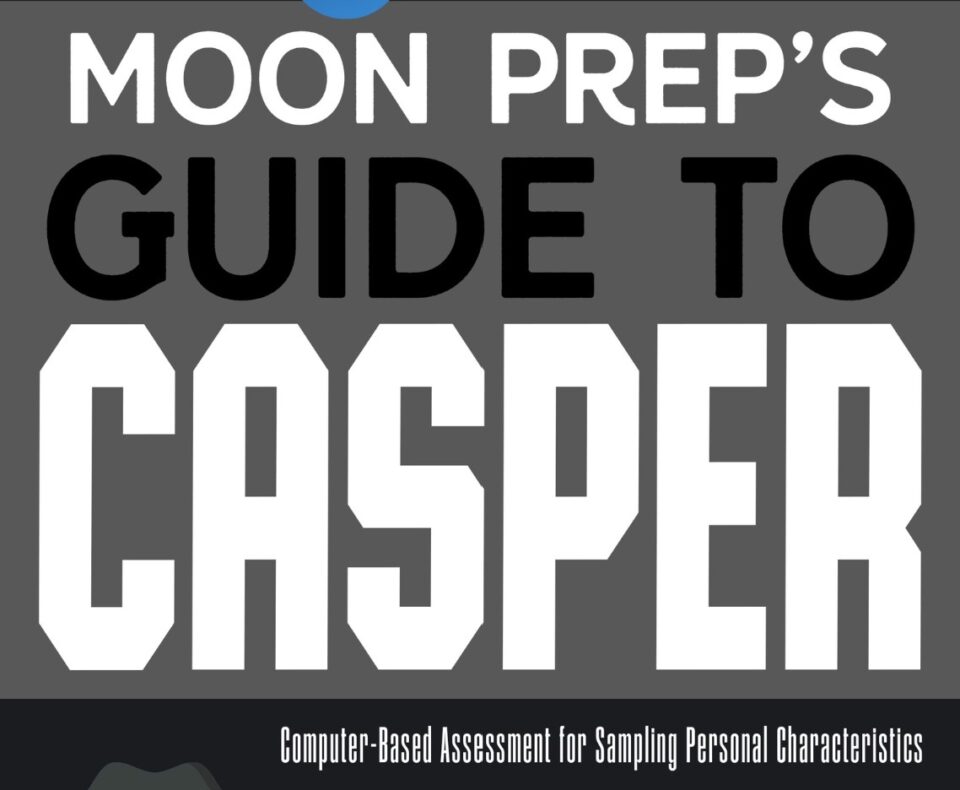Casper is touted as an exam you can’t study for by its administrator, Acuity Suite. However, similar to your preparations for the SAT or ACT, that doesn’t mean that you can’t prepare. Having a strategy to approach this situational judgment test can improve your performance and score in the top percentile against your peers.
Required by many medical, dental, and BS/MD programs, the Casper (Computer-Based Assessment for Sampling Personal Characteristics) is designed to assess what type of student you are beyond your resume and transcript. According to the Acuity Insights website, “it asks what you would do in a tough situation, and more importantly, why.” CASPER evaluates you on the following skills:
- Collaboration
- Communication
- Empathy
- Equity
- Ethics
- Motivation
- Problem Solving
- Professionalism
- Resilience
- Self-Awareness
Since it was first implemented in 2015, Capser has grown in popularity as a way to assess students’ ability to succeed in these people-facing careers. For the 2023-24 admissions cycle, Acuity Insights revamped its offerings to help provide colleges with a more holistic view of their applicants.
Students applying to medical school, dental school, or direct medical programs can only take the exam once per application cycle. Because of this restriction, you’ll want to be prepared by understanding what the exam is testing you on, how it is evaluated, and how to develop strategies to approach these challenging situations.
Casper Format
Casper is split into two sections: a video response section and a typed response section. In total, it will take between 90-110 minutes, if you take advantage of the 20 minutes of optional breaks, to complete the entire exam.
In this first section, students will be presented with six videos introducing a character, a predicament and the student’s role in the situation. After watching each short video, students will have one minute per question to respond. Students will give typed responses for two scenarios, while four of the videos will require recorded video responses, presented in a randomized order.
After the first section, students will have an optional 10-minute break.
In the second section, test-takers will be presented with eight written scenarios and have to answer three questions within five minutes. They will have to record a video answer for five scenarios, and the remaining three will require a typed response. These scenarios will appear in random order.
Here are 7 tips to help you score higher on Casper.
- Consider multiple facets. As you prepare your response to the ethical questions, remember: there is often no one true “right” answer. Instead, the raters want to see your ability to consider multiple perspectives, show empathy, and ultimately commit to a course of action while discussing its pros and cons. You should display that you come from a place of understanding and compassion while maintaining your ethical values.
- When answering each question, you must show your thought process rather than solely choosing the “right” answer.
- Learn the basics of common ethics and medical ethics. Because you are being tested on how you would respond to ethical dilemmas, you should have an understanding of what your ethics are before you tackle Casper. While you won’t be explicitly tested on your knowledge of medical knowledge or ethics, having a basic understanding can guide you in your responses.
- Use personal examples to help convey empathy and respect. While you likely won’t be asked specific questions about your own experiences, you might have to discuss when you faced a similar situation as the scenario. You won’t be able to prepare for every question you might encounter, but it can be helpful to start to create a story bank of ideas to use during the exam. Remember, a different rater will evaluate each scenario, so reusing stories or examples as you see fit is okay. As you reflect on stories you can use, think about how you approached the situation and how you want to improve.
- Use “If/then” statements. Because the Capser raters want to see you considering multiple perspectives, using “if/then” statements can be more effective in helping you in these hypothetical dilemmas. For example, if this is true, then I would react this way. However, if this alternative is true, then this is how I would respond.
- Avoid making assumptions. What can make these ambiguous scenarios difficult is that there is often a lot of missing information. You might want to automatically fill in some of the gaps by making assumptions. It’s essential to remember that in the Capser, what is unsaid is often more important than what is said. The different scenarios try to trick you into making assumptions and going down the wrong path to answering the questions. By remaining non-judgmental in your response, you can give people the benefit of the doubt and allow them to express their thoughts.
- Make a firm judgment. You are also being tested on your ability to pick a path and stick to it. In some scenarios, you may be faced with making tough decisions where you want to make exceptions to the rules for the person. However, this won’t make you look empathetic; it will just make you look like you are unable to make difficult choices. As a future doctor, veterinarian, dentist, etc., there might be similar situations where you have to make a choice that won’t be well-received by everyone. Casper is testing you on those skills.
- Practice! Preparing for a situational judgment exam can be challenging, but it is not impossible. By understanding the questions you will face, you can formulate a more proactive strategy to improve your chances of scoring high on Casper. You’ll also want to emulate testing conditions and try to answer the responses within the time limits. That way, you can figure out what realistically you could say or write in each scenario, helping you budget your time wisely.





